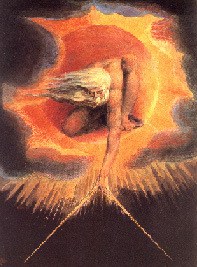Etymology
 Ancient concepts
Ancient conceptsNavigating the site:
A lexicon of Greek words expressing basic ideas about the world:
![]()
Nature | Heaven | Cosmos | Knowing | Natural Law | Opinion | Science | What
Terms:
aisthesis, perception, sensation
aithér, ether,
arché, beginning, start, ultimate substance
areté, excellence, virtue,
demiourgós, maker, craftsman
dialectical, method of opposition
dike, justice, compensation for loss or transgression
doxa, opinion, or judgement
dynamis, active & passive capacity
éidos, appearance, form, idea
episteme, true, scientific knowledge
génesis, birth, becoming, process
génos, kind, type, genus
gnorimon, knowable, intelligible
gnosis, knowledge, in general
homoiomereiai, similar parts
horos, boundary, definition,
hyle, material, matter, basic stuff
kosmos, cosmos, order
logos, speech, account, reason, ration
methexis, participation
nomos, custom, arbitrary law
nous, intellect, mind, intelligence
oikeiosis, self-love, self-appropriation
ouranós, heaven, the heavens, sky
ousía, substance, existence
physis, nature
pneuma, air, breath, spirit
preSocratic idea of the four elements
pyr, fire
stoicheíon, letter, body, element
téchne, craft, skill, art, applied science
ti ésti, what is it?, the what-it-is, essence
![]()
Concepts
Nature | Heaven | Cosmos | Knowing | Natural Law | Opinion | Science | What
physis, nature
"the inquiry that uses the methodological approach
of logos and later known by Pythgoras as philosophia had as its general
subject matter physis. "stuff"
Three related meanings:
1) the growth process or genesis (Empedocles)
2) material stuff out of which things are made (Pl & Aris)
3) internal organizational principle or
the structure of things (Heraclitus & Democritus)
Anaximander, Xenophanes, Heraclitus
158-59
nomos, custom, arbitrary law
"The intrusion of nomos into philosophical
discourse in the 5th century followed upon the shift of the notion of
nature (physis) from the material to the ethical realm."
This may have been a result of the medical influence ("On the Nature
of Man" appears as a title in the Hippocratic Corpus), but can be
seen in the ethical coloring of the concept of kosmos.
The idea of Divine Law had been advanced by Heraclitus and there were subsequent appeals to 'unwritten law' (agraphos nomos)" having god's sanction
Natural Law, for the Stoic the essence of virtue was 'living harmoniously with nature' (nomos)."
Hippocratic, Herodotus, Heraclitus, Protagoras
131
kosmos, cosmos, order
ornament, order, the physical, visible universe.
The order of the visible or tangible universe*
The Milesians use the idea of an orderly universe or universal order to
explain cosmic process thereby replacing he sexual metaphors of earlier
myths.
Humans as the microcosm of the universe appears in Democritus
*related to the intelligible universe [kosmos noetós]
see:
nous, nomos, dialectical.
Anaximander, Empedocles, Pythagoras, Democritus
108-9
ouranós, heaven, the heavens, sky
"Heaven is a generative principle in ancient (Hesiod) cosmogonies. It first appears in a strictly philosophical context in a difficult passage of Anaximenes where he is represented as posting 'innumerable ouranoi that are gods.' Henceforth the Greek view of heaven as a single entity is at least partially replaced by that of a multiplicity of heavenly spheres that envelope the earth and carry the sun, moon, and planets,while the final outermost sphere carries the fixed stars... the belief in the divinity of the heavenly bodies (ouranoi... kosmos )."
Anaximenes, Plato, Aristotle
148-49
gnosis, knowledge, in general
"the common Greek general term for knowledge"
Aristotelian usage of gnosis covered or embraced:
1) sense perception (aisthesis)
2) memory (mnemosthyne)
3) experience (empeiria)
4) scientific knowledge (episteme)
Later veritas gnosis (true knowledge) was ~ of Christian doctrine; whence its final technical meaning referred to superior or arcane knowledge guaranteeing salvation.
Aristotle
74
doxa, opinion, or judgement
1] opinion
a distinction between true knowledge {episteme} and an inferior grade
of cognition goes back as far a Xenophanes.
In Parmenides' poem sensation {aisthesis} is relegated to a position of
"seeming" or opinion (doxa).
2] judgement
By Aritotle's time a disctinction is drawn between premisses that are
necessary, as opposed to those that are contingent, or doxa requiring
a judgement between the essential and the merely sufficient.
Xenopahanes, Parmenides, Plato, Aristotle, Epicurus
40-41
episteme, true, scientific knowledge
For Heraclitus knowledge was the product
of sensations
In the Phaedo, Plato argues that sensorial knowledge is flawed contrasting
doxa (opinion) with episteme (verity).
Eide is the truly immutable, everlasting, the ground of real knowledge
(episteme). Eidos and episteme are locked together from their first implicit
appearance in the Meno where true knowledge (episteme) does not come through
the senses so we must be born with it.
Aristotle: praxis - techne - theoretike; mathematical, physical, theological
Heraclitus, Socrates, Plato, Aristotle
59
ti ésti, what is it?, the what-it-is, essence
"That which responds to the question
of "what is it:' by revealing the essence (ousía) of the thing,
i.e., by definition (horos) through genos and diaphora."
i.e. in Empedocles the 4 elements (stoixeion):
Geometric symbols translated by Greeks as Platonic solids relating to the four elements:
earth -- geo [cube]
air -- aer [octahedron]
fire -- pyr [pyramid]
water --hydro [icosahedron]
Aristotle
196, 182
Teknh
Techné, for technology, art of skillfully fitting things together to create a beautiful and useful outcome. (see technology related pages)
![]()
F.E. Peters
Greek Philosophical Terms: A Historical Lexicon (New York: NYU Press,
1967).

